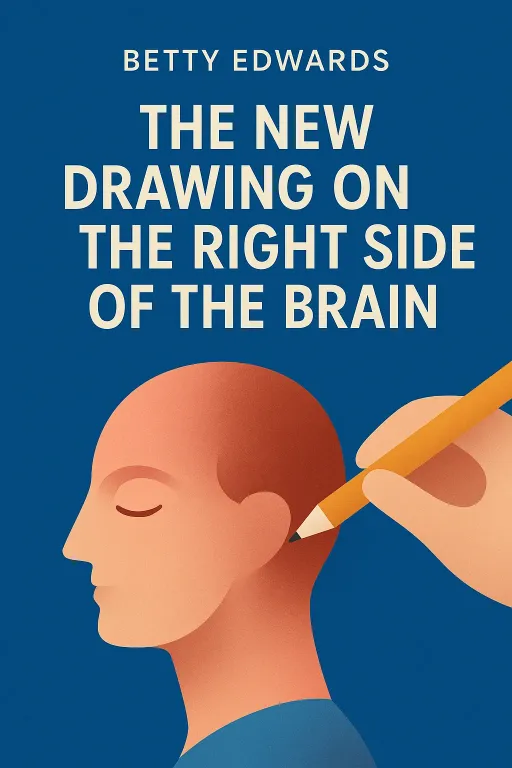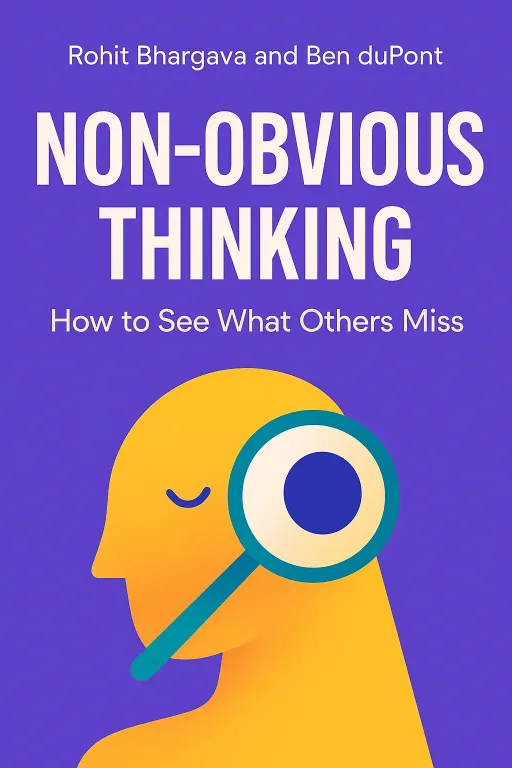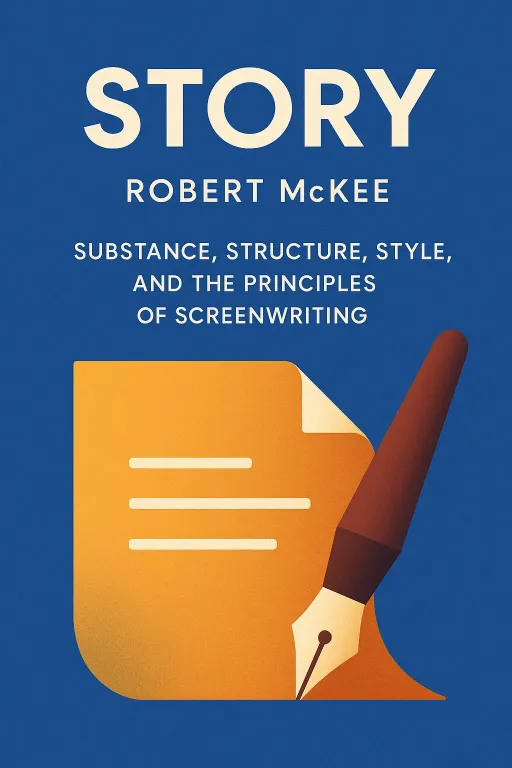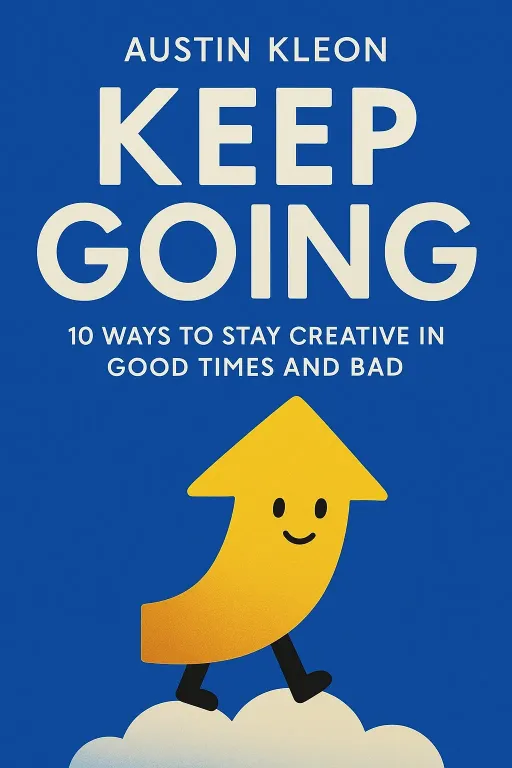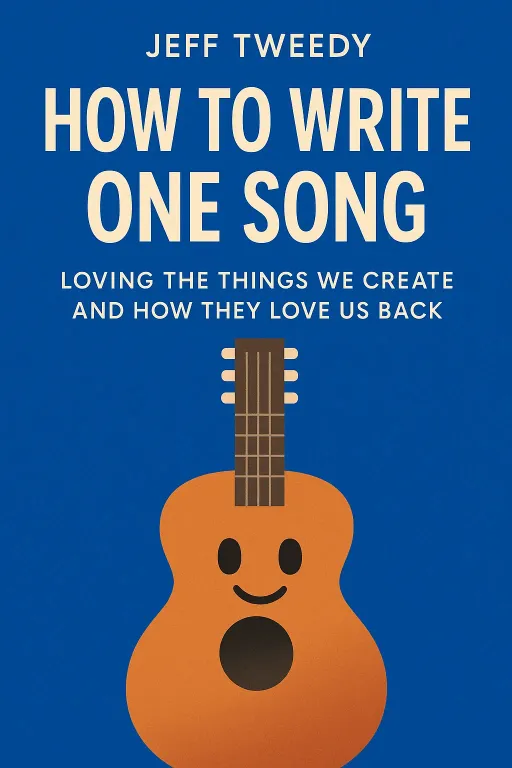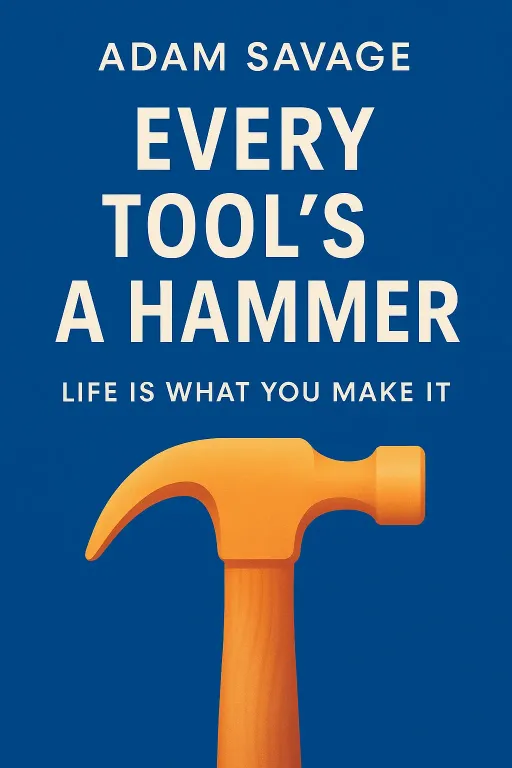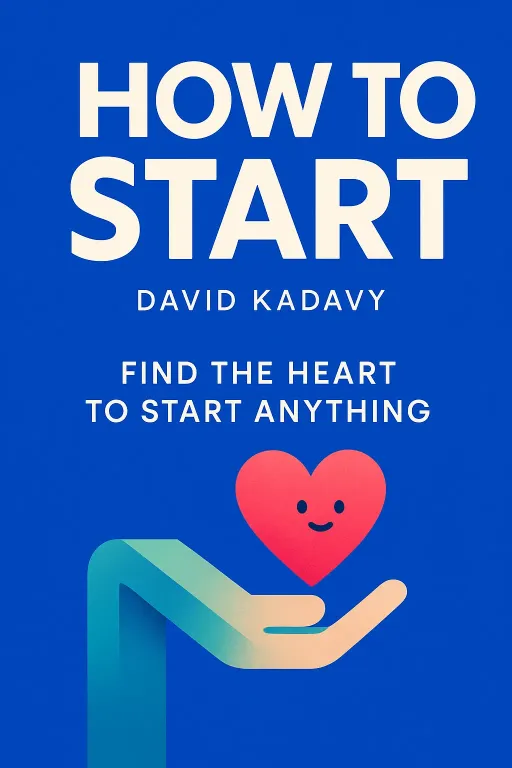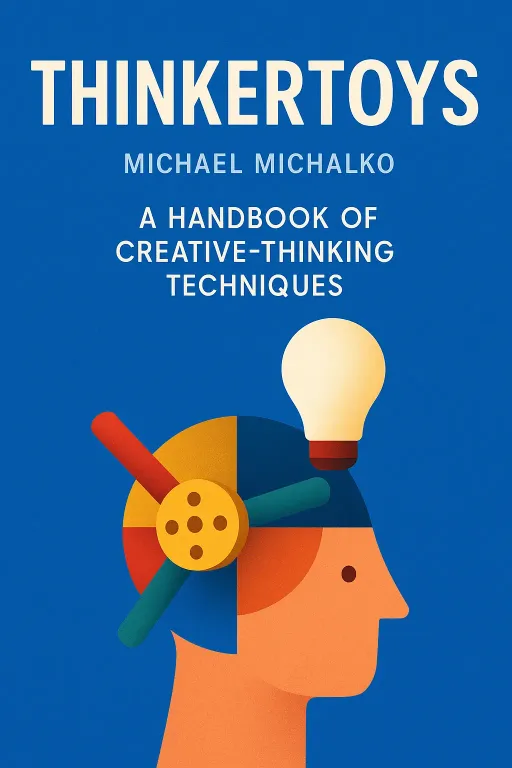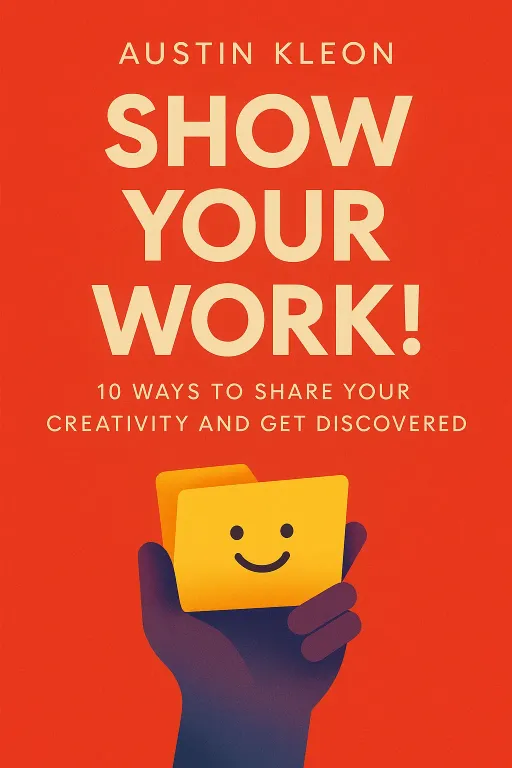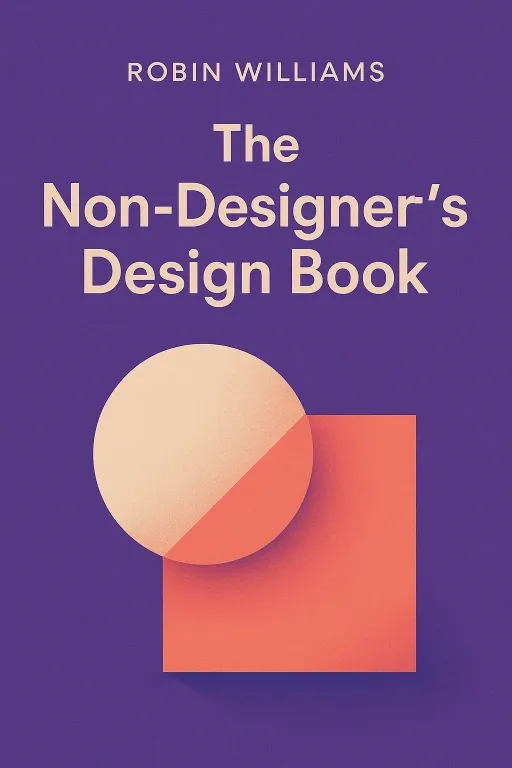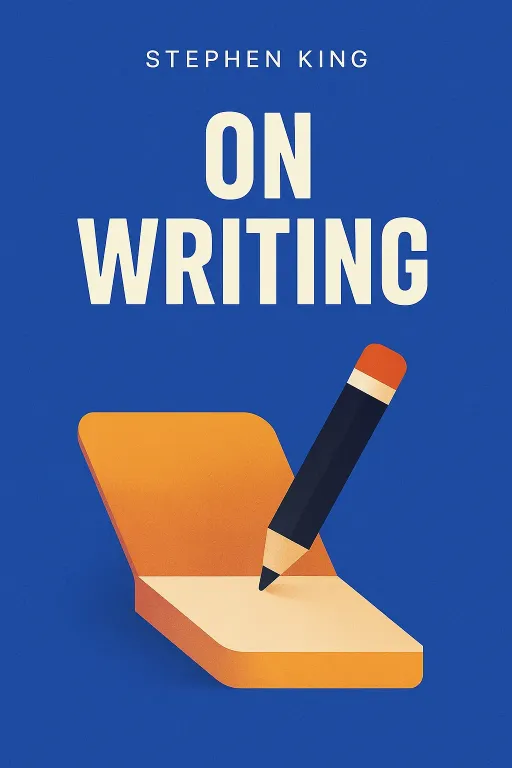
King's Telepathy & Toolbox
13 minA Memoir of the Craft
Golden Hook & Introduction
SECTION
Rachel: Stephen King believes writing is telepathy. Not a metaphor—actual, practical telepathy. He thinks he can plant a rabbit with the number 8 on its back directly into your mind, right now, using only words. And honestly? He’s probably right. Justine: Whoa, okay. That is a bold claim. So he’s not just the master of horror, he’s claiming to be a literal mind-reader? Or a mind-planter? I’m immediately hooked. Where does that even come from? Rachel: And that mind-bending idea comes straight from Stephen King's masterpiece on the craft, On Writing: A Memoir of the Craft. It’s a book that’s consistently and incredibly highly rated by both critics and readers, which is rare for a writing guide. Justine: Which is such a fascinating book because it's not just a manual. King wrote most of it before his near-fatal accident in 1999, and then finished it after, during his recovery. You can feel that life-or-death perspective baked into every piece of advice. It gives the whole thing this incredible weight. Rachel: It really does. And to understand how he thinks that telepathy works, you have to start where he starts: with his own absolutely bonkers childhood. This isn't just a C.V.; it's an arsenal of narrative weapons.
The Writer's C.V.: Life as Raw Material
SECTION
Justine: I’m ready. I feel like most people assume that to be a writer as prolific as King, you must have had this epic, adventurous, globe-trotting life. But that’s not really his argument, is it? Rachel: Not at all. His argument is that the most potent fuel for writing comes from the ordinary, the mundane, and especially the painful and bizarre moments of a regular life. He proves it with his own stories, which are just as strange as his fiction. For instance, let's talk about his babysitter, Eula-Beulah. Justine: Oh boy, a name like Eula-Beulah can only lead to a strange story. Rachel: You have no idea. He describes her as this hurricane of a woman. She would tickle him and hug him one minute, and the next, she’d hit him on the head hard enough to knock him down. But the peak of her babysitting career was when she decided to fry him seven eggs for breakfast. He was just a little kid. Justine: Seven eggs? That’s not a breakfast, that’s a challenge. Rachel: He ate them all. And then, predictably, he vomited all over the floor. Eula-Beulah’s response was not to clean it up or comfort him. It was to lock him in a closet. Justine: She locked him in a closet with his own vomit? That is the most Stephen King origin story I have ever heard. It’s horrible, but it also explains… a lot. Rachel: Exactly. His mother came home, found him, and fired her on the spot. But King’s takeaway from this, decades later, is incredible. He says the experience with Eula-Beulah prepared him for a lifetime of literary criticism. After a woman has farted on your face while yelling "Pow!"—which she also did, by the way—a bad review in the New York Times just doesn't have the same sting. Justine: That’s amazing. So is he arguing that trauma is good for a writer? That seems like a dangerous idea. Rachel: He’s more nuanced than that. It’s not that trauma is good, but that nothing is wasted. Every experience, good, bad, or just plain weird, becomes part of your unique perspective. It’s the raw material. And it’s not all trauma. On the other end of the spectrum, he tells this beautiful story about writing his first original piece. Justine: This I want to hear. After the Eula-Beulah story, I need something hopeful. Rachel: He was a kid, sick in bed, and he’d been just copying comic books word for word. His mom saw this and said, "Write one of your own, Stevie. I bet you could do better." So he wrote this little story about a big white bunny named Mr. Rabbit Trick who drove around in an old car helping kids. Justine: Mr. Rabbit Trick. I love it. Rachel: He showed it to his mother, and she read it and asked, "You didn’t copy this one?" He said no, and she told him it was good enough to be in a book. He writes, "Nothing anyone has said to me since has made me feel any happier." Then she gave him a quarter for it. He wrote four more Mr. Rabbit Trick stories, and she paid him a quarter for each one. He earned his first dollar as a writer from his mom. Justine: Wow. So you have both ends of the spectrum—the bizarre, character-building trauma and the simple, profound encouragement. It's all just raw data for the writer's brain. One experience teaches you resilience, the other teaches you the joy of creation. Rachel: Precisely. Your life is your C.V., your resume. It’s what makes your voice yours and nobody else's. He talks about getting a case of poison ivy on his butt, his brother’s science fair project blowing out the power grid for two blocks, getting his eardrums lanced by a doctor without anesthetic. It’s all in there. Justine: It makes you look at your own life differently. Maybe that terrible first job or that awkward high school phase isn't just a bad memory; it's a future chapter. Rachel: Exactly. And once you have all that raw data from your life, King says you need a toolbox to shape it. And this is where he gets really controversial for a lot of writers.
The Writer's Toolbox: Demystifying the 'Magic'
SECTION
Justine: Okay, I’m intrigued. When I think of a writer’s toolbox, I think of fancy words and complex literary devices. Is that what he means? Rachel: Quite the opposite. He completely demystifies the act of writing. He compares it to carpentry. His own uncle was a carpenter who carried this massive, heavy toolbox to every job, even if it was just to fix a single screen. King asked him why, and his uncle said, "It's best to have all your tools with you. You never know what you'll find." Justine: That’s a great analogy. So what are the tools in a writer’s toolbox? Rachel: The top layer, the most accessible stuff, is vocabulary. And his advice here is fantastic. He says you don't need a huge, flowery vocabulary. Your job is to use the first word that comes to your mind, if it's appropriate and colorful. Don't dress up your vocabulary. As he puts it, "It ain't how much you've got, honey, it's how you use it." Justine: I love that. It’s so unpretentious. It’s permission to not sound like a walking thesaurus. What’s next in the box? Rachel: Grammar. He says you have to know the rules before you can break them. But then he gets to the really big, foundational tools. And this is where he challenges everything most of us were taught about writing. He has this deep suspicion of plot. Justine: Hold on. No plot? How is that even possible? Isn't that what a story is? A sequence of events? What does he mean by that? Rachel: This is the core of his philosophy. He says, "Story is honorable and trustworthy; plot is shifty, and best kept under house arrest." He believes that plotting a story in advance is artificial. It’s the writer playing God and forcing characters to do things that fit an outline, rather than what they would do naturally. Justine: Okay, but if you don't have a plot, what do you have? Just a bunch of characters sitting in a room? Rachel: You have a situation. That’s the key difference for him. You don't start with a plot, you start with a situation. He gives the example of his novel Misery. He didn't plot it. He had a dream on a plane about a popular writer being held captive by a psychotic fan who was angry he killed off her favorite character. That was it. The situation. A writer, a crazy fan, a secluded house. Justine: And the story is just… what happens next? Rachel: Exactly. He puts the characters in the situation and then lets them run. He trusts them to do what they would authentically do, and that creates the story. The story excavates itself. He compares it to archaeology. The story is a fossil in the ground. Your job isn't to create it, but to dig it up, tool by tool, as carefully as you can. Justine: That’s a huge mental shift. It takes all the pressure off of having to be this brilliant architect of a story and instead makes you more of a curious observer. Rachel: It does! And it connects directly to his most famous piece of advice: "Write with the door closed, rewrite with the door open." The first draft is you and the characters, digging up that fossil. No one else is allowed in. You’re just telling yourself the story. It’s raw, it’s intuitive, it’s messy. Justine: And rewriting with the door open? That’s when you invite others in? Rachel: That’s when you let the world in. You take that fossil you’ve unearthed and you start to clean it, polish it, and see what it really is. You get feedback. You look for the theme. He has this formula he got from an editor early in his career: 2nd Draft = 1st Draft – 10%. You have to be willing to "murder your darlings"—to cut the parts you love that don't serve the story. Justine: That 10% rule is brutal but so practical. It forces you to be disciplined. It’s fascinating how he’s built this whole system that’s both incredibly creative and deeply pragmatic. It’s not magic; it’s work. Rachel: It’s work. And he’s very clear that anyone can learn to do the work. He says he’s met many competent writers, and with dedication, a competent writer can become a good one. That’s incredibly empowering. Justine: Okay, so writing is built from your life, and it's a craft you practice with tools. That all makes sense. But the end of the book takes this to a whole other level. It's not just about how to write, but why we should bother in the first place.
Writing as a Way Back to Life
SECTION
Rachel: Yes, the final section, "On Living: A Postscript," is what elevates this book from a great writing manual to a profound work of philosophy. He recounts, in harrowing detail, the 1999 accident where he was struck by a van while on his daily walk. Justine: I remember when that happened. The reports were terrifying. His injuries were catastrophic. Rachel: They were. His leg was shattered in nine places, his hip was fractured, his scalp was lacerated, his spine was chipped. He almost died. The book pivots here from talking about writing to talking about survival. And the biggest struggle, after the initial physical agony, was returning to his craft. Justine: I can’t even imagine. How do you write about character and dialogue when you’re just trying to manage excruciating pain every second of the day? Rachel: He didn't know if he could. He describes sitting in a wheelchair, his leg in an external fixator—this metal cage with pins drilled into the bone—and just staring at the computer screen. He writes that the blank page felt like a "vast, empty prairie." But his wife, Tabitha, who is the hero of this entire book, basically made him. She set up a comfortable desk for him and said, "Writing is what you do." Justine: So he just forced himself? Rachel: He forced himself. His first session back, he wrote for an hour and forty minutes and produced about 500 words. He said the pain was exquisite, and when he was done, he was crying, totally exhausted. But he did it. And he did it again the next day. And the day after that. Justine: So did writing save his life? Is that the big takeaway? Rachel: This is the most beautiful and honest part of the book. He says no. He’s very clear about it. He quotes, "Writing did not save my life—Dr. David Brown’s skill and my wife’s loving care did that." But then he adds the crucial part: "but it has continued to do what it always has done: it makes my life a brighter and more pleasant place." Justine: Wow. That’s such an important distinction. The art isn't a magical cure. Rachel: It’s not. It’s a way back. He says, "Writing is not life, but I think that sometimes it can be a way back to life." The routine, the discipline, the simple act of putting one word after another—that was the path back to himself. It gave him a sense of purpose when everything else had been stripped away. It wasn't an escape from life; it was an anchor to it. Justine: He ends the book with that powerful idea, doesn't he? "Put your desk in the corner... Life isn’t a support-system for art. It’s the other way around." Rachel: That’s the one. It’s a direct rebuttal to the romantic, self-destructive artist myth. Your life, your family, your health—that’s the main event. Writing is the thing you do in the corner that enriches that life. It doesn't get to be the center of the room.
Synthesis & Takeaways
SECTION
Justine: When you put all three parts together, it’s this incredible philosophy. It’s so holistic. Rachel: It really is. You see the full circle. Your life, with all its pain and joy, gives you the raw material. The toolbox gives you the craft to shape it. And that very act of shaping it, of writing, gives your life structure and meaning, and helps you get through the hardest parts. Justine: I think what’s so powerful is how he demystifies it all. He’s one of the most successful writers in history, and yet his advice isn't some esoteric secret. It’s: read a lot, write a lot, be honest, pay attention to the world, and don’t be lazy. Rachel: And do it for the right reasons. He says he never wrote for the money. He wrote for the buzz, for the pure joy of it. And that’s why he could do it forever. He ends with this beautiful, simple invitation. He says, "Writing is magic, as much the water of life as any other creative art. The water is free. So drink. Drink and be filled up." Justine: It makes you wonder, what's the 'writing' in our own lives? The one simple, disciplined act that we can return to, not to escape life, but to make it richer. It doesn't have to be writing. It could be gardening, or coding, or playing an instrument. Rachel: It’s a powerful question. And it’s one that feels more relevant than ever. We’d love to hear your thoughts on this. Find us on our socials and share what that one creative act is for you. What’s your water of life? Justine: This is Aibrary, signing off.
